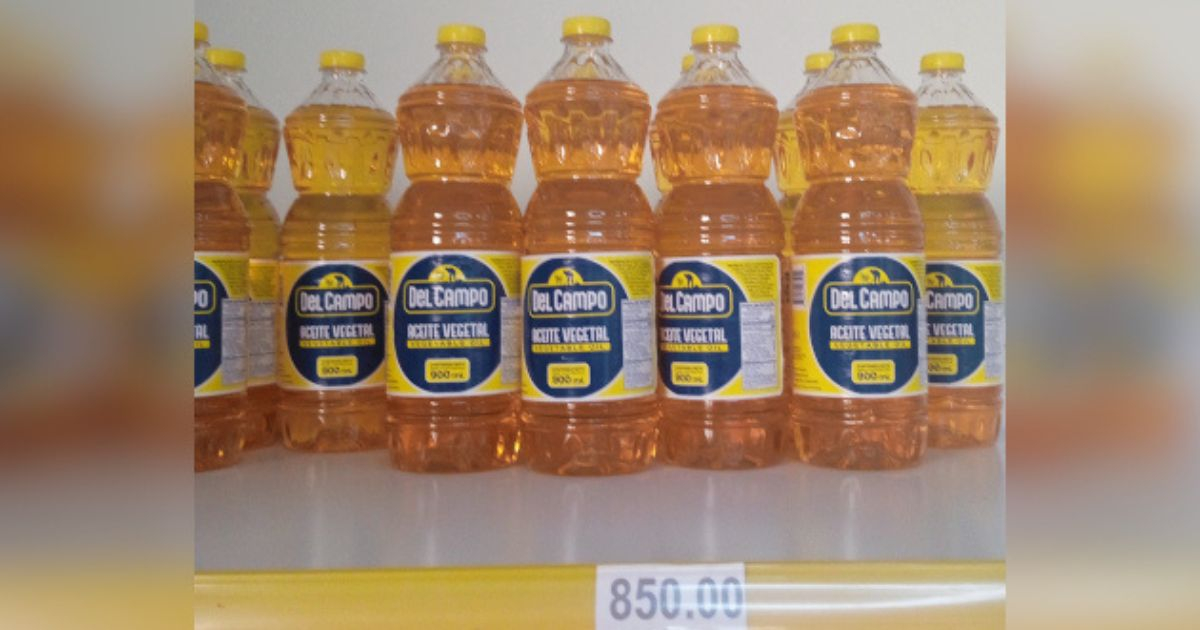Following the regime's announcement of price caps on six high-demand basic products, the government of Cienfuegos has uncovered that some vendors are expressing dissatisfaction by hiding their merchandise.
A report from the official newspaper 5 de Septiembre indicated that chicken pieces and cooking oil are the most concealed products. This situation led to "a dozen forced sales of these products by the owners of the merchandise," the news portal reported.
Similar forced sales of agricultural products have occurred in some municipalities of the province, primarily in the capital territory.
The pro-regime website criticized non-state management forms (FGNE), claiming they justify prices through "chains of illegalities and manipulated comparisons."
"In the network of hard currency stores, a liter of oil is sold for 3.15 MLC, which, according to the official exchange rate of 1 X 120 pesos, would be equivalent to 378.00 CUP," the report noted.
It emphasized that small businesses and other new economic actors aim to sell the same product at a higher price, "under the argument of having to restock in the informal market," the newspaper pointed out, completely ignoring that these merchants are forced by the regime to buy foreign currency "on the street" due to the lack of a formal exchange market.
The report stated that FGNE must sell oil at the approved price of 950.00 CUP per liter, which, according to the newspaper, would convert to 2.76 MLC on average. Otherwise, they would be "trying to formalize exchange rates developed by dubious algorithms and endorsing illegality."
The report also highlighted that, to a lesser extent, there has been evidence of a "tendency to increase prices on other products offered by the same seller, trying to ensure the profit margin achieved with the capped products."
As a result, the regime's mouthpiece news portal warned: "This could lead to new abusive prices and requires everyone's confrontation in the traceability and legality of the marketer's cost sheets."
However, on Wednesday, Manuel Marrero Cruz, Prime Minister of Cuba, denied the existence of a crusade against private businesses but did request that non-state actors think less about their profits and contribute to society.
In front of the members of the National Assembly, Marrero Cruz made it clear that the regime does not plan to eliminate private businesses: "We are not here to close them," he said, according to a segment broadcast on the state-run Canal Caribe.
Nonetheless, Marrero defended the high prices of stores in Moneda Libremente Convertible (MLC) compared to the caps established for FGNE, arguing that the state buys in expensive markets with fewer benefits.
The official acknowledged that state store prices in MLC are higher than some capped products but maintained that "it is unfair to make that comparative analysis."
Understanding Price Controls and Their Impact in Cienfuegos
In light of the recent measures and their repercussions, here are some frequently asked questions and answers regarding the price controls in Cienfuegos.
Why are vendors in Cienfuegos hiding their products?
Vendors are hiding their products in response to the regime's implementation of price caps on six high-demand basic goods, which they find unfavorable.
What products are being concealed the most by vendors?
According to reports, chicken pieces and cooking oil are the most concealed products by vendors in Cienfuegos.
What has been the regime's response to the concealment of products?
The regime has conducted forced sales and criticized non-state management forms, accusing them of justifying prices through illegal means and manipulated comparisons.
Is the Cuban government planning to shut down private businesses?
No, Prime Minister Manuel Marrero Cruz has stated that the regime does not intend to eliminate private businesses but has asked non-state actors to contribute more to society.
